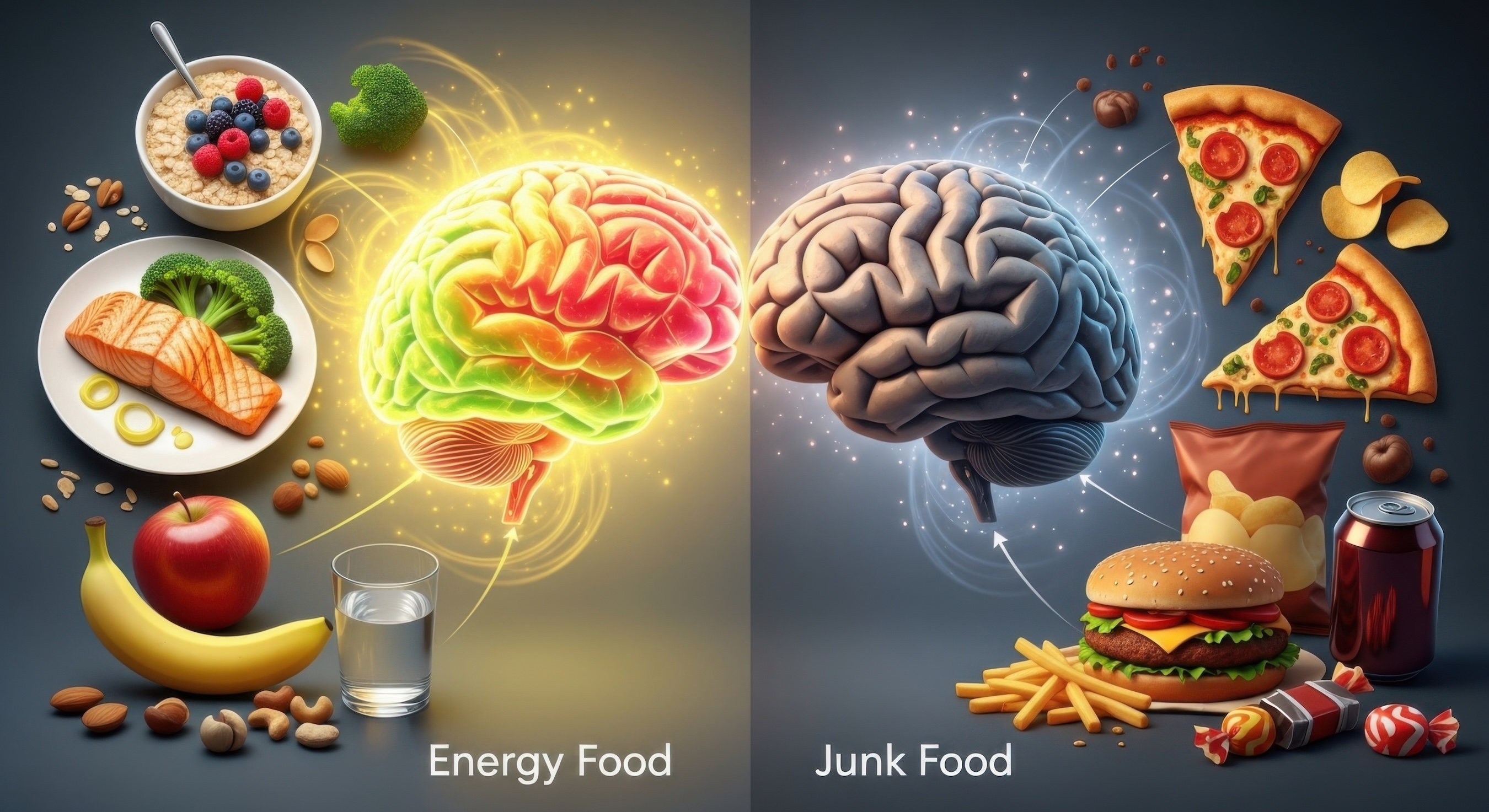
The link between diet and health involves physical, mental, and emotional well-being. Let’s take a closer look at how what you eat can affect your health, with some examples and practical tips.
Nutritional Quality and Chronic Disease
Prevention:
Studies show that munching on whole, nutrient-packed foods like fruits, veggies, whole grains, lean proteins, and healthy fats can really cut down the chances of chronic diseases. For example:
- Heart Health: Eating less saturated fat and more omega-3s (like those in fish, flaxseeds, and walnuts) can reduce your risk of heart problems. The Mediterranean diet—packed with plant-based foods, healthy fats, and moderate amounts of fish and poultry—has been linked to fewer heart disease cases. For heart-healthy meal suggestions choose Heart-Healthy in your DinnerTime Profile Builder and receive meals aligned with the American Heart Association guidelines.
- Diabetes Management: Sticking to a whole-foods, plant-based diet can boost insulin sensitivity and help keep blood sugar levels in check. One study found that folks on a plant-based diet had significant drops in their HbA1c levels, which tracks long-term blood sugar control. For plant-based meal suggestions choose ‘no meat’, ‘no fish’, ‘no poultry’ in your DinnerTime Profile Builder. If you’re unsure about eating a more ‘plant-forward’ diet, just use the dropdown in your DinnerTime Meal Planner for one day of your meal plan and select ‘meatless’.
 Mental Health and Nutrition:
Mental Health and Nutrition:
There’s growing research suggesting a strong connection between what we eat and our mental health. Nutritional psychiatry is a cool new field exploring how our diets can affect our mood, anxiety, and overall mental wellness:
- Gut-Brain Connection: Our gut plays a huge role in our mental health. Foods high in fiber (like fruits, veggies, and whole grains) help keep our gut microbiome healthy, which can affect mood-regulating brain chemicals like serotonin. Skipping these foods might be linked to higher rates of depression and anxiety.
- Mood-Boosting Foods: Some nutrients are known to be good for our mental health. For instance, omega-3 fatty acids (in fish and flaxseeds) and B vitamins (found in leafy greens, legumes, and whole grains) are linked to better brain health and may help ease symptoms of depression.

Weight Management:What we eat is super important for keeping a healthy weight. While balancing calories in and out is key, the quality of those calories plays a big role, too.
- Whole Foods vs. Processed Foods: Diets heavy in processed foods, which often have added sugars, unhealthy fats, and empty calories, can lead to weight gain and obesity. On the flip side, whole foods are usually more nutrient-dense and filling, helping you feel satisfied and making it easier to maintain a healthy weight. However you set up your Profile in DinnerTime, we’ll suggest delicious meals made with whole foods – not ultra-processed foods.
![]()
Inflammation and Immune Function:
Certain diets can either ramp up or chill out inflammation in the body, affecting our overall health and how well our immune system works:
- Anti-Inflammatory Foods: Eating a diet full of antioxidants (like those found in colorful fruits and veggies) and polyphenols (found in stuff like berries, green tea, and dark chocolate) can help fight inflammation. Chronic inflammation is linked to a bunch of health problems, including heart disease, diabetes, and some cancers.
- Processed and Sugary Foods: On the flip side, diets high in refined sugars and processed foods can kick inflammation up a notch, leading to health issues. If you often gulp down sugary drinks and munch on processed snacks, you might see higher inflammation markers in your blood, which can mess with your overall health.
Tips for a Healthier Diet:
- Load Up on Whole Foods: Try to fill your plate with fruits, veggies, whole grains, and lean proteins. Start small by adding a serving or two of fruits or veggies to your meals each day.
- Mindful Eating: Tune into your hunger signals and eat slowly. This can help you really enjoy your food and notice when you’re full, which can keep overeating at bay.
- Meal Prep: Planning your meals with DinnerTime help you make healthier choices and steer clear of quick, unhealthy options.
- Stay Hydrated: Drinking enough water is super important for your health. Sometimes we mix up thirst with hunger and end up snacking when we’re actually just thirsty.
- Get Professional Help: If you’re not sure how to step up your diet, think about chatting with a nutritionist at DinnerTime who can help you come up with a plan that works for your lifestyle and health goals.

The link between what we eat and our health is pretty complicated and impacts everything from our physical health to our mental well-being. By making smart food choices and being mindful of what we eat, we can take good care of our bodies and minds, leading to better health and a better quality of life.

